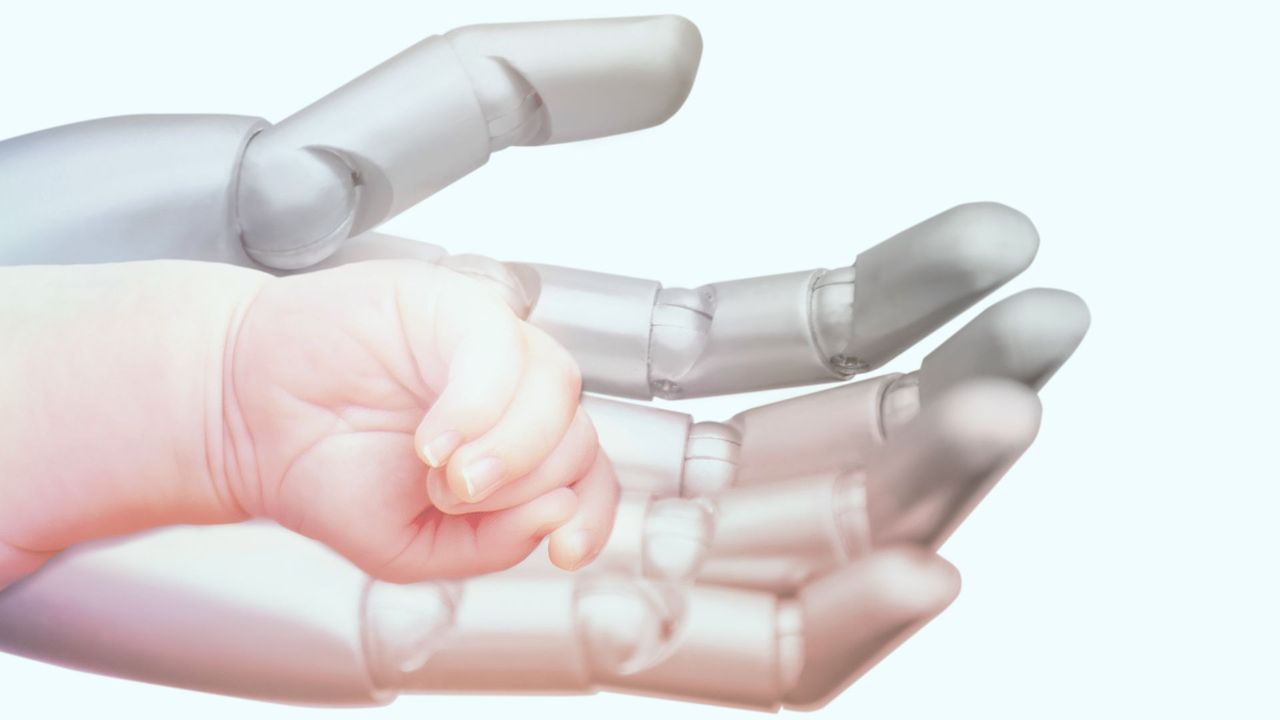Science
Viral Story Sparks Debate on Feasibility of ‘Pregnancy Robots’

A viral narrative claiming that a technology CEO in China is developing a “pregnancy robot” has captured widespread attention this week. Although the story is fictional, it has ignited discussions about the potential for such technology and the ethical questions it may pose. The CEO reportedly suggested that a prototype of this robot could be ready by next year, designed to sustain a human pregnancy from conception to birth, which typically lasts around 10 months.
While the notion of a robot capable of managing the complexities of human reproduction is intriguing, it remains firmly within the realm of science fiction. Nonetheless, the story’s virality speaks to a growing public fascination with the intersection of technology and human biology. This interest raises significant questions: Could advancements in robotics make such a device possible? What ethical implications would arise from creating a machine to replicate human pregnancy?
As technology evolves, the concept of a “pregnancy robot” prompts a deeper examination of societal values and norms. The idea challenges traditional understandings of motherhood and reproduction. Would individuals consider using such a device if it were available? A poll accompanying the story invites readers to share their thoughts, particularly those who might be undecided. What factors would influence their decision?
The conversation surrounding this topic reflects a broader discourse on technological intervention in human life. Innovations in reproductive technology, such as in vitro fertilization and artificial wombs, are already reshaping how society views conception and childbirth. A successful implementation of a pregnancy robot would represent a significant leap forward, but it also necessitates careful ethical consideration.
Public reaction to the idea has been mixed, with some expressing enthusiasm for the possibilities, while others voice concern over the implications of mechanizing such a personal and profound experience. The dialogue extends beyond personal opinions, weighing the potential benefits against the risks of dehumanizing a natural process.
In the context of increasing advancements in robotics and artificial intelligence, the concept of a pregnancy robot may not be as far-fetched as it seems. Researchers and developers are continually exploring new frontiers in technology, making discussions like these increasingly relevant. As society grapples with the implications of such innovations, the question remains: what role should technology play in the most intimate aspects of human life?
For those interested in the latest developments in robotics, China has already made headlines with its innovative projects, including a robot capable of self-sustaining operations. This adds another layer to the ongoing conversation about the future of robotics in everyday life.
While the “pregnancy robot” may currently exist only in the imagination, the dialogue it has sparked is essential as we navigate the complex relationship between technology and humanity. As the world continues to evolve, so too will the ethical frameworks that guide these advancements.
-

 Technology5 months ago
Technology5 months agoDiscover the Top 10 Calorie Counting Apps of 2025
-

 Health3 months ago
Health3 months agoBella Hadid Shares Health Update After Treatment for Lyme Disease
-

 Health3 months ago
Health3 months agoErin Bates Shares Recovery Update Following Sepsis Complications
-

 Technology4 months ago
Technology4 months agoDiscover How to Reverse Image Search Using ChatGPT Effortlessly
-

 Technology1 month ago
Technology1 month agoDiscover 2025’s Top GPUs for Exceptional 4K Gaming Performance
-

 Technology3 months ago
Technology3 months agoElectric Moto Influencer Surronster Arrested in Tijuana
-

 Technology5 months ago
Technology5 months agoMeta Initiates $60B AI Data Center Expansion, Starting in Ohio
-

 Technology5 months ago
Technology5 months agoRecovering a Suspended TikTok Account: A Step-by-Step Guide
-

 Health4 months ago
Health4 months agoTested: Rab Firewall Mountain Jacket Survives Harsh Conditions
-

 Lifestyle5 months ago
Lifestyle5 months agoBelton Family Reunites After Daughter Survives Hill Country Floods
-

 Health3 months ago
Health3 months agoAnalysts Project Stronger Growth for Apple’s iPhone 17 Lineup
-

 Technology4 months ago
Technology4 months agoHarmonic Launches AI Chatbot App to Transform Mathematical Reasoning





















